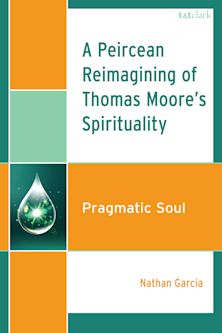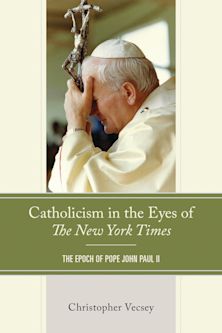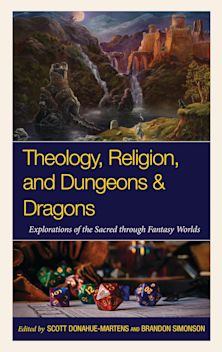- Home
- ACADEMIC
- Theology
- Theology - Other
- Emotional Intelligence for Religious Leaders
Emotional Intelligence for Religious Leaders
Emotional Intelligence for Religious Leaders
You must sign in to add this item to your wishlist. Please sign in or create an account
Description
Religious leaders require tremendous skill in emotional intelligence, yet their training very rarely addresses how to develop the practical skills needed—from self-awareness to resilience. Emotional Intelligence Religious Leaders draws on the latest research in business, psychology, and theology to offer religious leaders the information and tools they need to increase their emotional intelligence and enhance their relationships, communication and conflict management skills, spirituality, and overall well-being. The book offers both a deep understanding of how to develop emotional intelligence and also prescriptive insights about how to practice it that will be helpful for religious leaders in many settings, including congregational ministry, lay ministry, spiritual direction, pastoral counseling, and more.
Table of Contents
Chapter 2: Emotional Self-Awareness as a Foundation
Chapter 3: Developing Self-Awareness
Chapter 4: Utilizing Emotional Self-Control
Chapter 5: Gaining Empathy
Chapter 6: Learning Organizational Awareness
Chapter 7: Establishing Influence/Assertiveness
Chapter 8: Embracing Conflict Management
Chapter 9: Spirituality of the Emotionally Intelligent Pastor
Chapter 10: Conclusion
Product details
| Published | Aug 24 2018 |
|---|---|
| Format | Ebook (Epub & Mobi) |
| Edition | 1st |
| Extent | 128 |
| ISBN | 9781538109151 |
| Imprint | Rowman & Littlefield Publishers |
| Illustrations | 4 b/w illustrations; 1 table |
| Publisher | Bloomsbury Publishing |
About the contributors
Reviews
-
Hopefully, board-certified chaplains already have learned and practice these skills. Nevertheless, it could be a good resource as part of an initial presentation of emotional intelligence concepts in a seminary setting, at the start of an extended unit of CPE or a residency, or as an adjunct to coaching someone lacking in one or more areas of emotional intelligence. Their concluding words ring true for all who are on the journey of growing emotional intelligence.
"Association of Professional Chaplains"
-
I can think of no other subject more essential for spiritual and religious leaders today than what is written in this book. How grateful I would be if I had read this at the beginning of my ministry. If you are considering becoming a spiritual or religious leader or you already one, please: read this book.
Erin Gilmore, Rocky Mountain Conference United Church of Christ
-
As a pastor and professional counselor, this book does an excellent job in describing emotional intelligence both theologically and psychologically. The authors have a great understanding of the proper balance of what God expects of leaders and the unrealistic expectations we can place on ourselves. Each chapter contains in-depth analysis and practical applications for all leaders.
Ken Pott, LPC, executive director, BridgePoint and Transition Counseling Centers
-
As I finished reading Emotional Intelligence for Religious Leaders, my first thought was how valuable this would have been more than twenty years ago when I started ministry. I was equipped with Biblical knowledge, but I was clueless of the internal demands and stresses of ministry. My degrees were beneficial, but all three were sorely lacking in the area of emotional intelligence.
Barry Park, senior minister, University Christian Church
-
For decades, we have mistakenly downplayed the importance of pastoral leadership. And yet, congregations succeed or fail in their mission, oftentimes, in direct relation to the effectiveness of their pastors. Emotional Intelligence for Religious Leaders recognizes not only the importance of pastoral leadership but emotionally intelligent and healthy pastoral leadership. It is a must-read for any pastor seeking to maximize her or his potential as a spiritual leader.
John Wimberly, congregational consultant
-
C.S. Lewis said, in reference to his writings, ‘Until the theologians and the ordained clergy begin to communicate with ordinary people in the vernacular, in a way that they can understand, I’m going to have to do this sort of thing.’
Thanks to libraries, bookstores, and websites we have Lewis. Thanks to John West and his fellow writers, whom I strongly suspect already see through the wry scholar’s eyes, there is added hope for our generations of clergy and lay professionals. Emotional Intelligence for Religious Leaders offers no less than collaborative brilliance. It serves up fresh insight and access to tools already at work in the helping sciences.
Some in the clergy cringe at the mere mention of psychology. They shouldn’t. The word originates in the Greek, and ‘psych’ translates as ‘soul’ and suffix ‘logy” or ‘logos’ translates as premise, discourse, or opinion. ‘Discourse of the soul’ is shared territory for pastors and psychologists alike. It’s the same turf.
Clergy moves in these arenas just as ably the behavioralists. Perhaps even more so, for a fire burns in the souls of pastors and lay leaders alike, a fire unrestrained by limits of reason, hypothesis, or the scientific method.
Clergy should know that wisdoms lay on the other side, answers that address the ordinary, irksome issues that confront faith professionals almost daily. The writers share their own stories. They share how added skills in communication, sensitivity, and emotional intelligence worked for them; how they’ve shed administrative weights. They’ve separated the wheat from the chaff for us, and, in doing so, served the readers with a rich menu of ideas. They offer an approachable, understandable frame of reference that serves the cause of our faith without undermining any of the orthodoxy in its mission. Please, check it out.Mark Sellers, founder, New Covenant Soul Care

ONLINE RESOURCES
Bloomsbury Collections
This book is available on Bloomsbury Collections where your library has access.


































